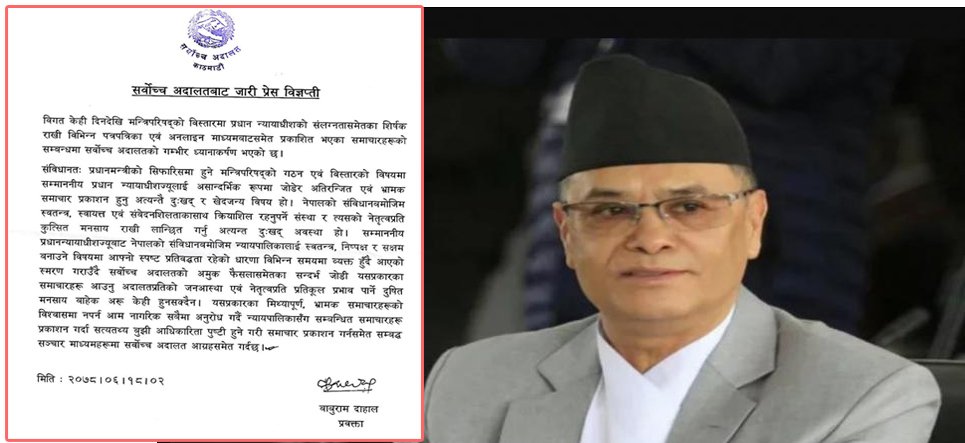MCC And Interpretative Declaration
Uttam Maharjan
The MCC compact was endorsed by Parliament on 27 February 2022 after passing through one stumbling-block after the other. As the deadline of February 28 was approaching, there was no consensus even among the coalition partners, let alone among the major political partners, and there were cries of protest all along. At long last, the ruling coalition agreed to get the MCC compact ratified by Parliament by annexing to it a 12-point interpretative declaration as there was no room for amending the compact signed way back in September 2017.
As the MCC compact was endorsed by Parliament with the interpretative declaration, some quarters viewed it as unnecessary. Interpretative declarations are unilateral declarations made by a state or international organisation to elucidate the scope and meaning of a treaty or any provisions thereof. Such declarations must be made by one representing the state or international organisation in relation to a treaty, indicating that the text of the treaty has been adopted or authenticated and the consent of the state to the treaty has been made. Such declarations, however, do not alter the provisions concerned.
Interpretative declarations are different from reservations in that they do not purport to exclude or modify legal effects of any provisions of a treaty. Reservations are legally binding. If no reservations are expressed to any provisions, the treaty is deemed to have tacitly been accepted. Likewise, when interpretative declarations are not opposed by the other party, it is deemed to have tacitly been accepted by the party.
Not binding
Interpretative declarations are not binding; however, when a dispute arises regarding any provisions of a treaty, their significance becomes all the more pronounced. When there is a controversy over any provisions of a treaty, what is generally done is interpret the disputed provisions. As such provisions have already been interpreted under interpretative declarations, it will be easier to interpret such provisions.
It need not be reiterated that there was an almost irreconcilable controversy over some provisions of the MCC compact. As soon as the MCC proposal was tabled in Parliament, protests escalated outside the Parliament building. The MCC compact was, however, ratified by a majority amid protests outside the Parliament building and obstructions by the main opposition CPN-UML inside the Parliament building.
The twelve-point declaration has clarified some major controversial provisions. Associating the MCC compact with the Indo-Pacific Strategy was perhaps the biggest apprehension harboured by the people. Under the interpretative declarations, it has been made clear that Nepal shall not be associated with any US strategic, military or security alliance, including the much-touted Indio-Pacific Strategy.
There was a rumour before the compact was passed by Parliament that the American law would prevail over the constitution of the country in the course of implementing the compact and in case of any disputes. The relevant interpretative declaration has reassured the people that the American law shall not prevail over the compact. Another noteworthy interpretative declaration is related to the ownership of intellectual property rights. As the project will be embarked upon in Nepal, any intellectual property created under the project shall be owned by Nepal.
Likewise, the clouds of suspicion surrounding the audit of the project transactions have also scudded away. As per one of the interpretative declarations, the audit of transactions of the project shall be conducted by the Office of the Auditor General in accordance with the prevailing laws of the country. There was a widespread rumour that the USA, not Nepal, could terminate the MCC compact at any time. But it has been made clear that Nepal can terminate the MCC compact without assigning any reasons by giving 30 days’ notice in case the project violates the laws or policies of the country.
Another major interpretative declaration is related to the ownership of the project. The electricity transmission portion of the project, including all movable and immovable assets and land associated with the project, shall be owned by the Government of Nepal or its entities.
The declarations associated with the MCC compact were not drafted by the government on a whim at the eleventh hour. They are in accordance with international practices. As the MCC compact was already signed between Nepal and the USA in 2017 and the USA was not ready to amend any provisions of the compact, Nepal was under pressure to get it ratified by Parliament. Failure to do so on the part of the country might risk souring relations between the two countries. It may be noted that the USA has assisted the country in development endeavours in many ways. Being a cash-strapped country, the country cannot develop without development assistance from donor countries and agencies.
Implementation
There is a question whether the USA has accepted the interpretative declarations made by Nepal. As the USA has not objected to the interpretative declarations, it is deemed that the USA has accepted them. Should any disputes arise during the implementation of the project regarding the provisions clarified by these declarations, the interpretation of the declarations shall be valid. Moreover, the MCC headquarters has also welcomed the endorsement of the MCC compact without demur.
Now, the focus of the government has shifted to the implementation of the project. As mentioned in the MCC compact, the duration of the project will be five years. The MCC project is believed to create job opportunities, upgrade road networks and extend the electricity transmission to India, which will help in exporting surplus electricity to India.
(Maharjan has been regularly writing on contemporary issues for this daily since 2000. uttam.maharjan1964@gmail.com)
Recent News

Do not make expressions casting dout on election: EC
14 Apr, 2022
CM Bhatta says may New Year 2079 BS inspire positive thinking
14 Apr, 2022
Three new cases, 44 recoveries in 24 hours
14 Apr, 2022
689 climbers of 84 teams so far acquire permits for climbing various peaks this spring season
14 Apr, 2022
How the rising cost of living crisis is impacting Nepal
14 Apr, 2022
US military confirms an interstellar meteor collided with Earth
14 Apr, 2022
Valneva Covid vaccine approved for use in UK
14 Apr, 2022
Chair Prachanda highlights need of unity among Maoist, Communist forces
14 Apr, 2022
Ranbir Kapoor and Alia Bhatt: Bollywood toasts star couple on wedding
14 Apr, 2022
President Bhandari confers decorations (Photo Feature)
14 Apr, 2022











